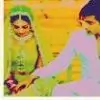Originally posted by: joeheranwala
This is the one thing about us Indians that I detest. Not only do we have to overcome the so-called racial prejudices from non-Indians, whether it be direct or indirect, we also have to overcome it from within our own communities. This isn't a new issue though is it? We talk about about the richness of our culture and how proud we are to be Indian or of Indian origin (directed at us pardesi lok). Yet our so called culture was founded on the basis that light skin is better than dark skin. How ironic is it then when we face racism from non-Indians, whether it be from white europeans, blacks, etc. (Face it, we've all been there) and pull the race card out and cry racist, when it is inherent within our own people.
Anyone care to comment?
It isn't just the indian community that experiences the above. You would probably be amazed to know that in the black community this is a major problem.
We all know the end results of slavery, where the masters mated with the female slaves to reproduce children who would be added to his property of slaves or sold to other plantations. The result of this mix produced mullatoes (blacks with very fair complexion and long hair as compared to the native Africans). These slaves of fairer complexion were used as houseslaves and received better treatment than their darker countertparts. Although all were slaves, the house slaves belittled the field slaves and even when slavery was abolished, the attitudes and prejudices continued to this day. Blacks of fairer complexion look down on those of darker complexions expecially if the fairer ones are more well off economically..
In Jamaica today, the problem is not as bad as it used to be, because it is not strange to find in a nuclear family a complexion mix among the siblings. You will find the mother - varying shades of dark and the father very fair or vice versa and the children come with a combination of the mix or either dark or fair. So I think to a great extent we have moved past this problem at home, but it stares us in the face when we go abroad.
































